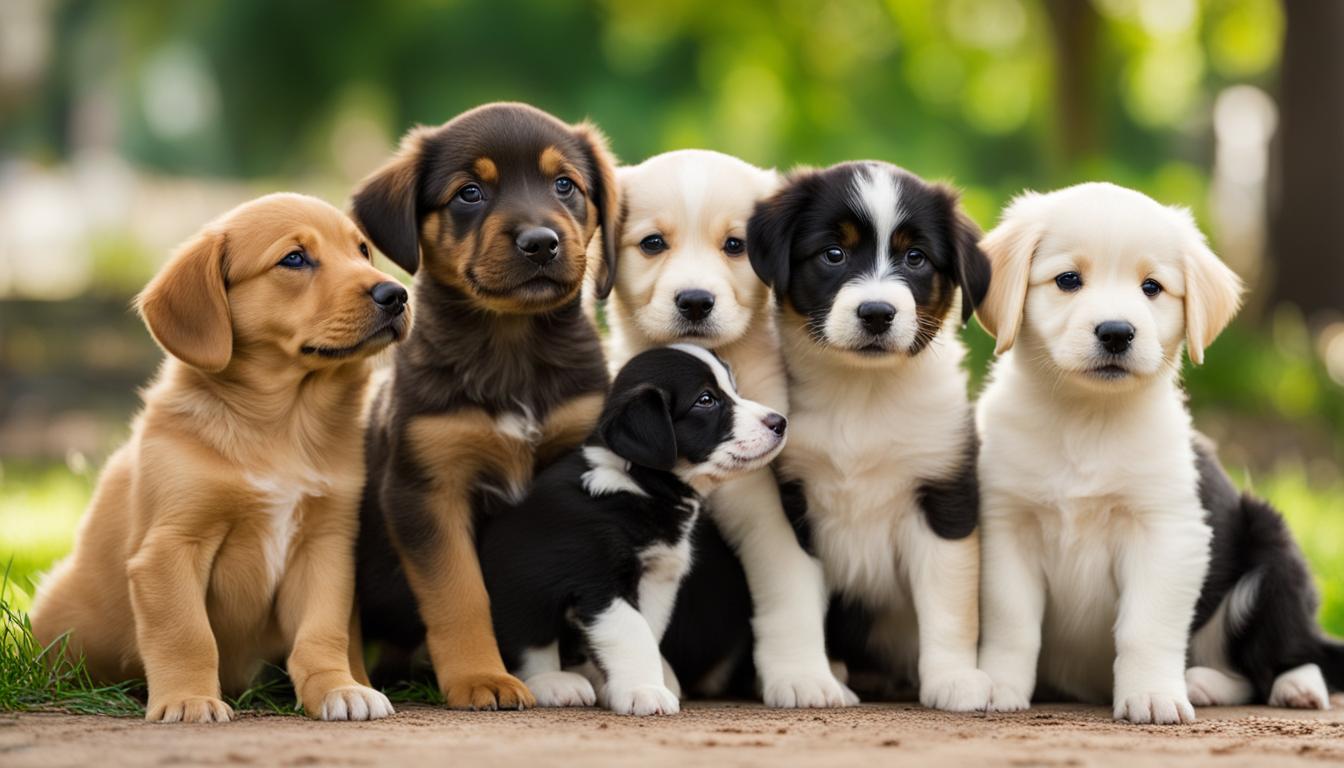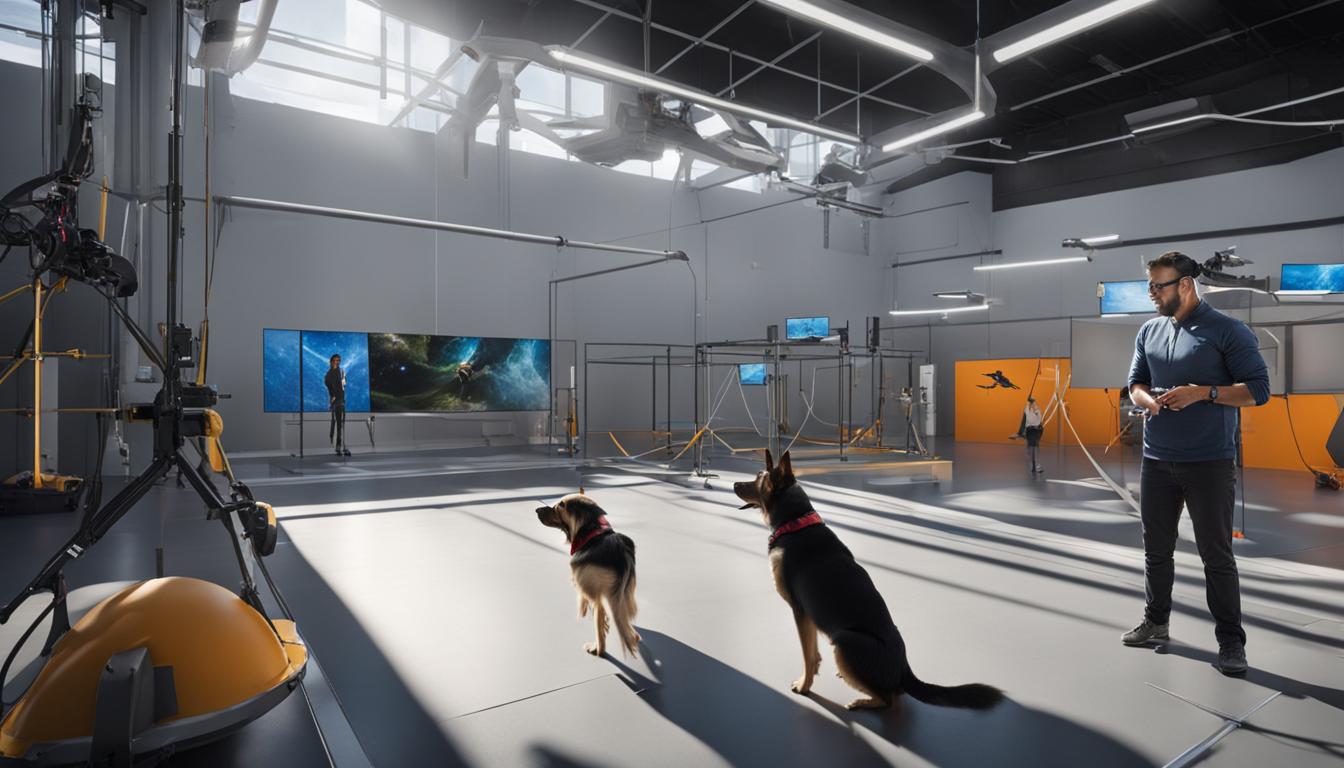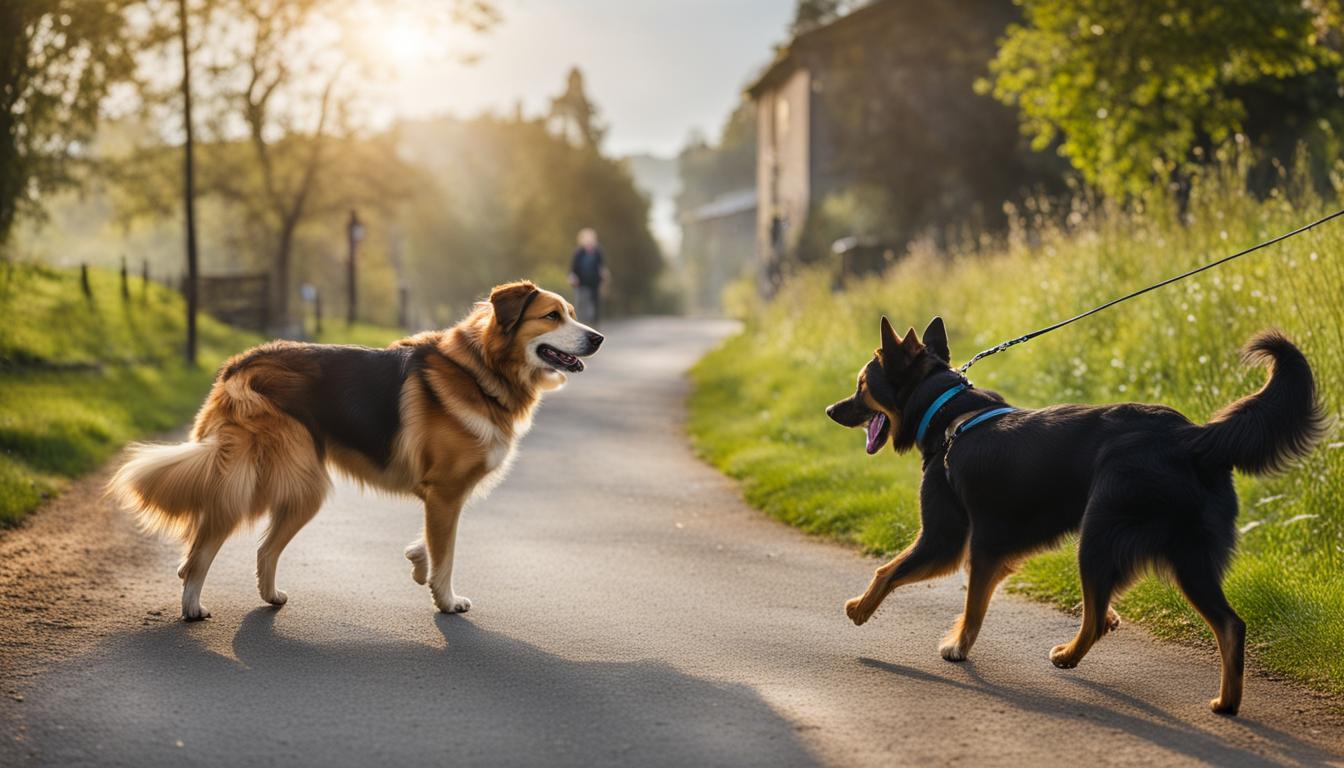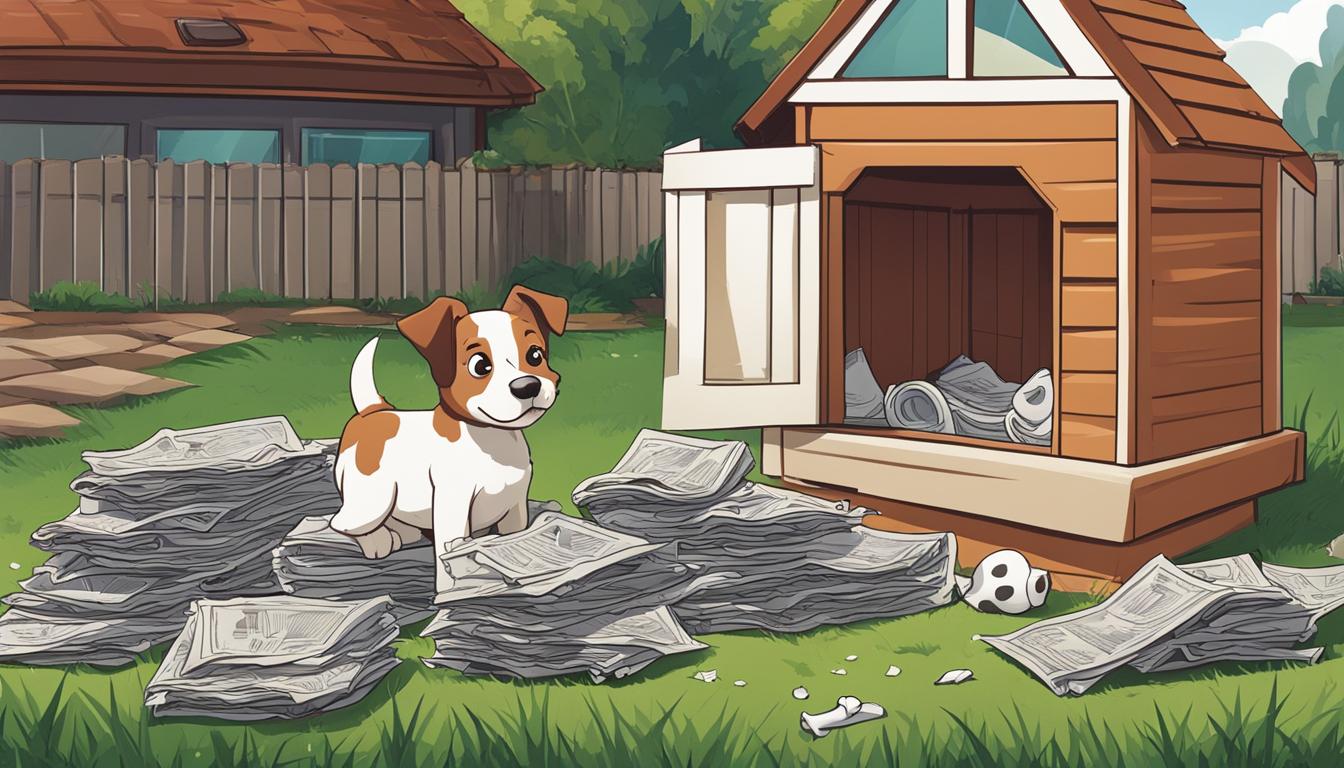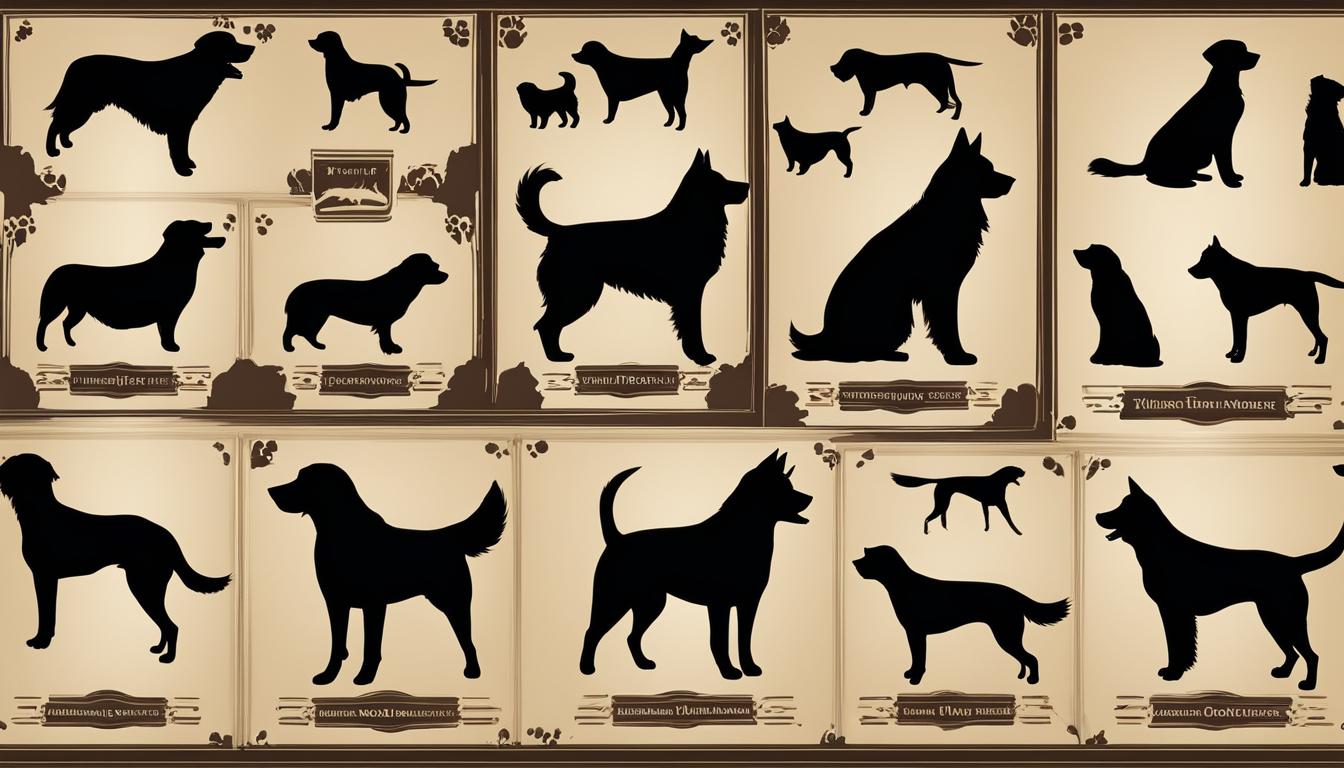Welcome to the world of puppy training! As a responsible pet owner, it’s important to understand the significance of socializing your furry friend from an early stage. Proper socialization plays a crucial role in shaping your puppy’s behavior and ensuring their overall well-being. By exposing them to various people, places, and situations in a positive manner during their critical developmental period, you can help them become friendly, confident, and well-adjusted dogs.
Key Takeaways:
- Puppy socialization training is essential for their development and well-being.
- The first three months of a puppy’s life are critical for socialization.
- Proper socialization helps puppies become friendly, confident, and well-adjusted dogs.
- Exposing them to a wide variety of people, places, and situations in a positive manner is crucial during this period.
- Start socializing your puppy early to have a positive impact on their temperament and behavior as an adult dog.
When to Socialize Your Puppy
Proper socialization of your puppy is crucial for their development and future behavior. But when is the best time to start socializing your furry friend? The answer is simple: as early as possible. The socialization period typically lasts for the first three months of a puppy’s life, so it’s important to begin socializing them before bringing them home.
Responsible breeders understand the significance of early socialization and often start gentle handling and exposure to safe environments, sounds, and smells from an early age. This early exposure helps puppies become accustomed to various stimuli, making them more confident and well-adjusted dogs in the long run.
By starting the socialization process early, you can have a positive impact on your puppy’s temperament and behavior as they grow into adult dogs. So don’t wait, begin socializing your puppy today and set them up for a lifetime of happiness and social success.
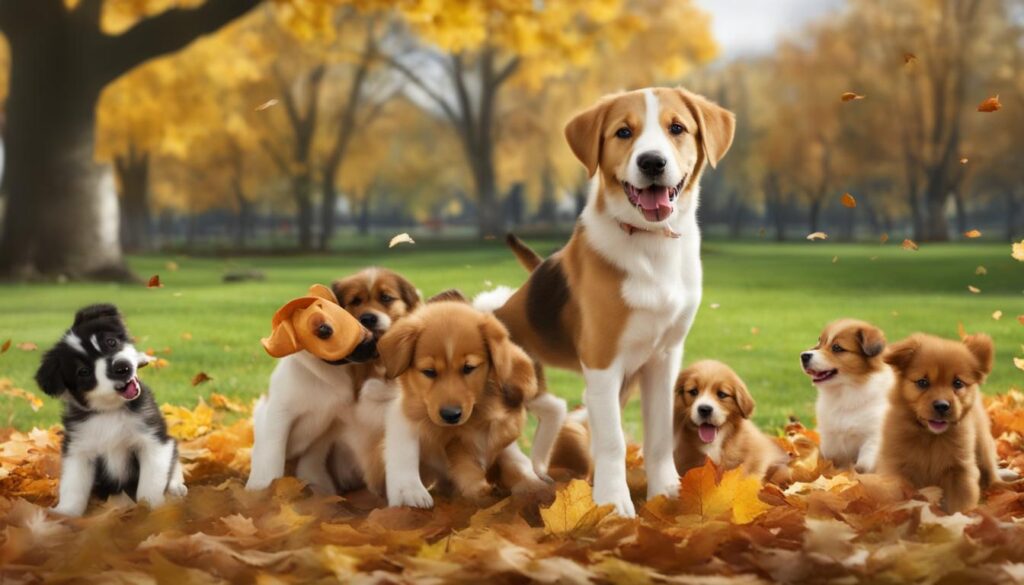
Table: Benefits of Early Puppy Socialization
| Benefits | Explanation |
|---|---|
| Improved temperament | Early socialization helps puppies become friendly and confident dogs, reducing the risk of fearfulness and aggression in adulthood. |
| Reduced anxiety | Puppies exposed to a variety of people, places, and situations during the critical socialization period are less likely to develop phobias or anxieties later in life. |
| Enhanced adaptability | Proper socialization allows puppies to adapt to new environments, sounds, and smells, making them more well-rounded and adaptable companions. |
| Prevention of behavior problems | The American Veterinary Society of Animal Behavior notes that behavioral issues, not infectious diseases, are the leading cause of death in dogs under three years of age. Early socialization can significantly reduce the risk of behavior problems. |
As you can see, there are numerous benefits to socializing your puppy early on. So don’t miss out on this crucial window of opportunity to shape your puppy into a friendly, confident, and well-mannered companion.
Why Socialize Your Puppy
Socializing your puppy is one of the most important things you can do to set them up for a lifetime of happiness and well-being. By exposing your puppy to a variety of people, places, and situations during their critical socialization period, you are helping them build the foundation for a confident and well-adjusted adulthood.
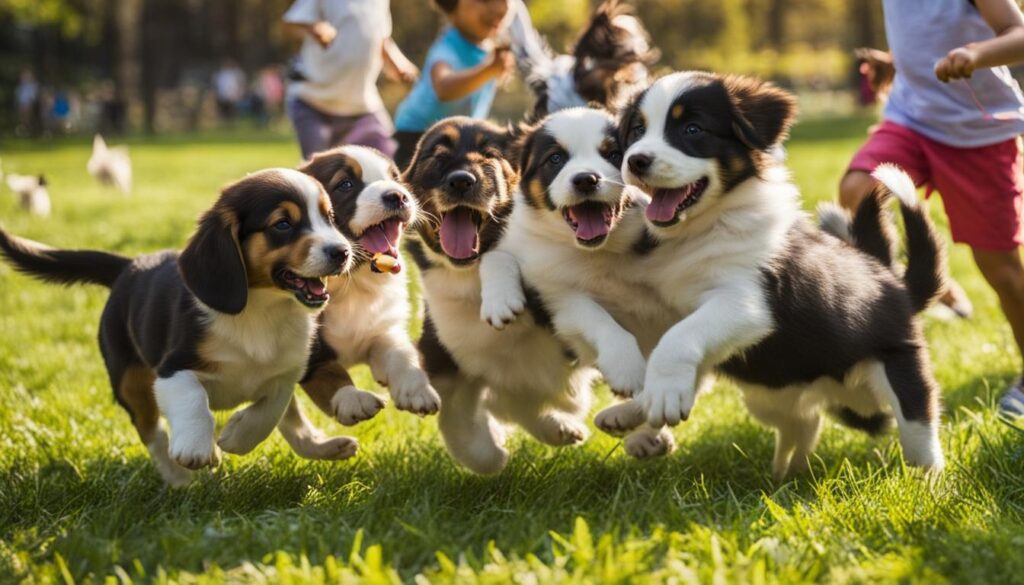
But why exactly is socialization so crucial for your puppy? There are several key benefits that come from proper socialization:
- Prevention of behavior problems: Socializing your puppy helps prevent common behavior problems such as fearfulness, aggression, and anxiety. By introducing your puppy to different stimuli in a positive and controlled manner, you are teaching them how to respond appropriately to new experiences.
- Development of confidence: Proper socialization boosts your puppy’s confidence and helps them become more comfortable in a variety of environments. This confidence will carry over into their adult life, making them more resilient and adaptable.
- Prevention of phobias and anxieties: Exposing your puppy to a wide range of sights, sounds, and smells in a positive way can help prevent the development of phobias and anxieties later in life. Early socialization helps your puppy learn that new experiences are nothing to be afraid of.
- Building positive relationships: Socializing your puppy allows them to interact with different people and animals, helping them learn appropriate social skills and build positive relationships. This will make them more sociable and friendly in the long run.
Remember, the benefits of socialization far outweigh the risks. By taking the time to properly socialize your puppy, you are setting them up for a lifetime of happiness, confidence, and well-being.
How to Socialize Your Puppy
Proper socialization is key to raising a well-adjusted and friendly puppy. By exposing your puppy to a variety of people, places, and situations, you can help them develop confidence and positive associations. Here are some tips on how to socialize your puppy effectively:
- Start early: Begin socializing your puppy as soon as you bring them home. The first three months of their life are crucial for social development.
- Positive associations: Make every socialization experience a positive one by offering treats, praise, and rewards. This will help your puppy associate new experiences with something enjoyable.
- Gradual exposure: Introduce your puppy to different environments, such as parks, streets, and new homes, gradually. Start with low-stimulus environments and gradually increase the level of exposure.
- Include the whole family: Engage all family members in the socialization process. This will help your puppy become comfortable around different people and ensure consistency in their training.
Remember, socialization is a lifelong process. Continue exposing your puppy to new experiences even as they grow older. This will help them maintain their sociability and adaptability. Consult a professional dog trainer or enroll in puppy classes to get expert guidance on socialization techniques. With patience and consistency, you can raise a well-socialized and confident canine companion.
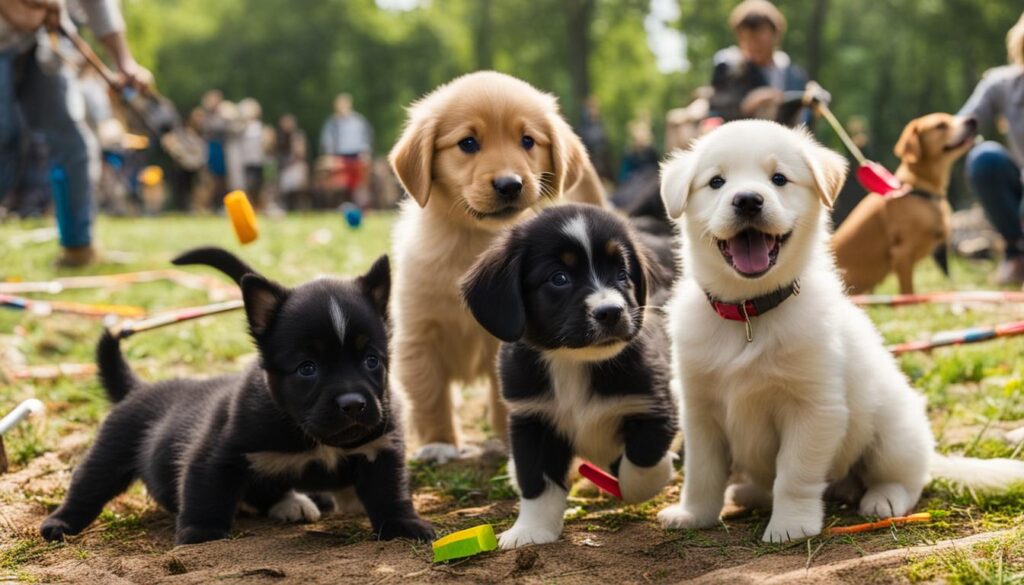
Puppy Socialization Techniques
When it comes to socializing your puppy, there are various techniques you can use to ensure their comfort and success:
- Desensitization: Gradually expose your puppy to different sounds, sights, and smells. Start with low-intensity stimuli and gradually increase the level of exposure.
- Counter-conditioning: Use positive reinforcement to change your puppy’s emotional response to certain situations. For example, if they are fearful of loud noises, reward them with treats and praise when they remain calm.
- Playdates: Arrange playdates with well-behaved and vaccinated dogs to teach your puppy appropriate social skills. This will help them learn how to interact with other dogs in a safe and controlled environment.
- Handling exercises: Get your puppy accustomed to being touched and handled by gently touching their paws, ears, and mouth. This will help them become more comfortable with veterinary exams and grooming.
By implementing these techniques and providing positive experiences, you can set your puppy up for a lifetime of social success. Remember, each puppy is unique, so be patient and tailor the socialization process to their individual needs. With time and effort, your puppy will develop into a well-socialized and confident dog.
Taking Your Puppy Out in Public
Now that your puppy has been introduced to basic socialization experiences, it’s time to venture out into the world. Taking your puppy out in public is an important step in their socialization journey. By exposing them to different environments, you help them become comfortable and confident in various situations. Here are some tips for socializing your puppy in public:
- Start with low-stimulus environments, such as quiet parks or calm streets in your neighborhood. This allows your puppy to gradually adjust to being outside their familiar surroundings.
- As your puppy becomes more comfortable, gradually introduce them to busier places, such as pet-friendly stores or outdoor cafes. Be mindful of their behavior and body language, ensuring they are not overwhelmed.
- Expose your puppy to different sounds, sights, and smells. This includes encountering people of various ages, other friendly dogs, and new objects they may encounter in public places.
- Ensure that your puppy’s vaccinations are up to date before taking them to public areas. Vaccinations help protect them from potential diseases or illnesses they may come into contact with.
- When visiting a dog park, follow proper dog park etiquette and safety protocols. Keep an eye on your puppy and intervene if necessary to prevent any negative interactions.
Remember, the goal of taking your puppy out in public is to expose them to different environments and stimuli in a positive and controlled manner. Gradually increase the level of difficulty as your puppy becomes more confident. Celebrate their progress and provide praise and rewards for their good behavior. By socializing your puppy in public, you are setting them up for a lifetime of positive experiences and interactions.
Socializing Older Dogs
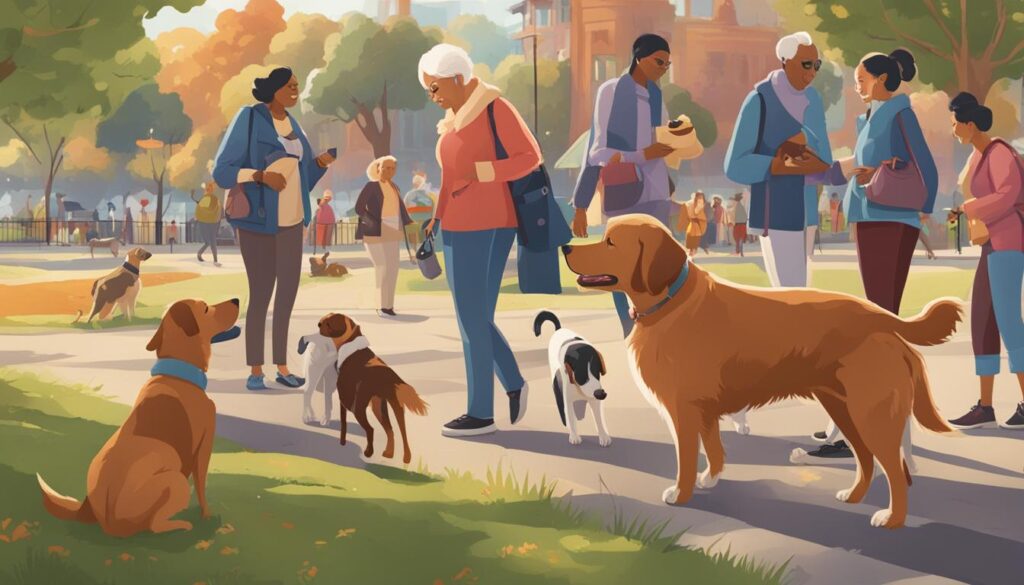
While socialization is most effective during the puppy stage, it is still possible to socialize older dogs. Whether you’ve recently adopted an adult dog or your canine companion missed out on early socialization experiences, it’s never too late to help them become more comfortable in various social situations. Socialization for adult dogs is crucial for their overall well-being and can greatly improve their quality of life.
Socializing older dogs requires patience, understanding, and a gradual approach. To successfully socialize an adult dog, follow these steps:
- Assess the dog’s behavior and triggers: Identify any specific fears or anxieties your dog may have, such as fear of other dogs, loud noises, or new environments. Understanding their triggers will help you create a tailored socialization plan.
- Start with familiar environments: Begin socializing your older dog in familiar and comfortable surroundings, such as your home or backyard. Gradually introduce them to new experiences, one at a time, and provide plenty of positive reinforcement along the way.
- Positive associations: Use treats, praise, and rewards to create positive associations with new experiences. If your dog has a fear of other dogs, for example, introduce controlled and positive interactions with calm and friendly dogs.
- Gradual exposure: Slowly expose your dog to new environments, people, and situations. If your dog is fearful of crowded places, start by visiting quieter areas and gradually work your way up to busier locations.
- Seek professional help if needed: If your dog’s fear or anxiety is severe, consider seeking guidance from a veterinarian or animal behaviorist. They can provide specialized training techniques and support to help your dog overcome their fears.
“Remember, every dog is different, and socialization should be tailored to their individual needs and comfort levels. Be patient, consistent, and always prioritize your dog’s well-being.”
By taking a gradual and positive approach to socializing older dogs, you can help them develop confidence, reduce anxiety, and improve their overall behavior. Remember that every dog is unique, so adjust your socialization plan accordingly. With time, patience, and plenty of positive reinforcement, your older dog can learn to navigate social situations with ease.
Table: Common Challenges and Solutions in Socializing Older Dogs
| Challenges | Solutions |
|---|---|
| Fearfulness | Gradual exposure to triggers with positive reinforcement and desensitization techniques. |
| Aggression | Seek professional guidance and implement behavior modification techniques. |
| Anxiety | Create a calm and predictable environment, use soothing aids like calming music or pheromone diffusers. |
| Past Trauma | Work with a professional to address and help your dog overcome past traumatic experiences. |
| Limited Socialization Opportunities | Arrange controlled playdates with well-behaved dogs and gradually expose your dog to new experiences. |
Remember, every dog is different, and socialization should be tailored to their individual needs and comfort levels. Be patient, consistent, and always prioritize your dog’s well-being. With the right approach and ongoing effort, you can help your older dog develop the social skills they need for a happier and more fulfilling life.
Conclusion
Congratulations on taking the first step towards raising a well-rounded and happy dog! Puppy socialization training is an essential part of their development and overall well-being. By following a few simple tips and techniques, you can help your furry friend become confident and adaptable in any situation.
Remember, consistency is key when it comes to socialization. Make sure to expose your puppy to a variety of people, places, and situations in a positive and controlled manner. Use treats and praise to reinforce their good behavior and create positive associations.
While socialization can sometimes come with challenges, don’t get discouraged. Every dog is unique, and it may take some time for your puppy to feel comfortable in new environments. Be patient and allow them to progress at their own pace.
If you encounter any difficulties or have concerns about your puppy’s behavior, don’t hesitate to seek professional guidance from a veterinarian or animal behaviorist. They can provide you with personalized advice and support to overcome any socialization challenges you may face.
FAQ
What is the best age to start socializing my puppy?
The socialization period typically lasts for the first three months of a puppy’s life, so it’s ideal to start socializing your puppy as early as possible.
Why is socializing my puppy important?
Proper socialization helps puppies become friendly, confident, and well-adjusted dogs. It also prevents behavior problems and fearfulness later in life.
How can I socialize my puppy?
Introduce your puppy to various people, places, and objects in a positive way. Use treats and praise to create positive associations. Enroll in puppy classes and consider participating in the AKC S.T.A.R. Puppy program.
When can I take my puppy out in public?
Once your puppy is comfortable with basic socialization experiences, you can gradually introduce them to low-stimulus public environments. Ensure their vaccinations are up to date before exposing them to public areas.
Can I socialize an older dog?
Yes, it is still possible to socialize older dogs. Be patient, introduce them to new stimuli at their own pace, and use positive reinforcement. Seek guidance from a veterinarian or animal behaviorist if your older dog exhibits severe fearfulness or anxiety.

